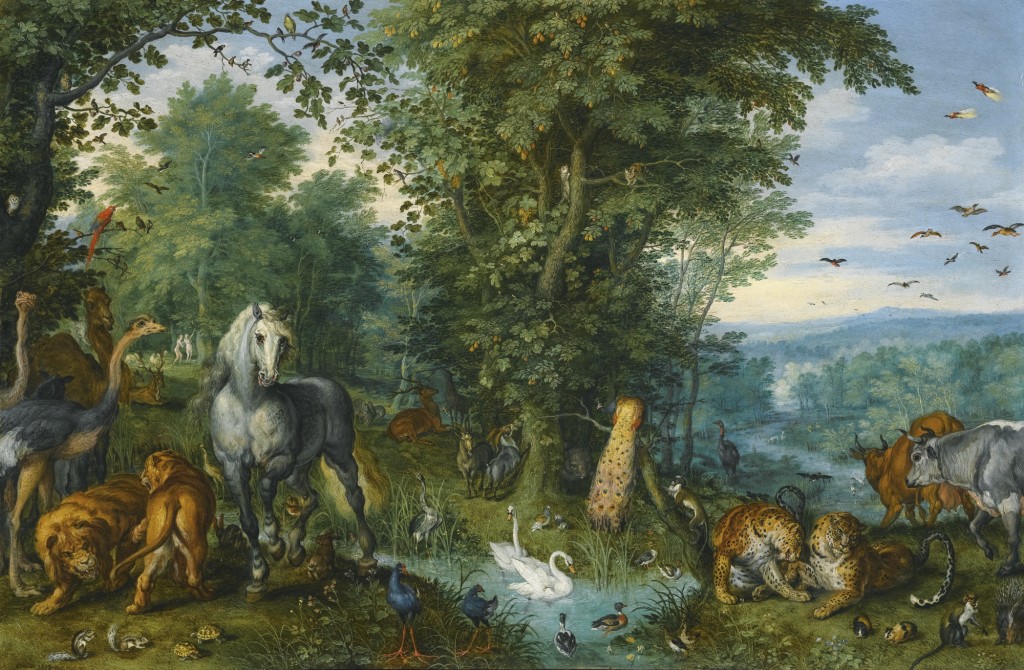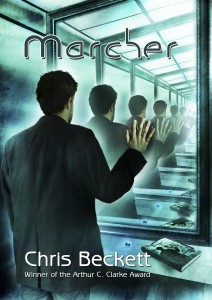When I was a student (in the mid-seventies) I once travelled by myself to the Western Isles of Scotland. As the passengers gathered to disembark at Lochboisdale in South Uist, something happened which I hadn’t anticipated at all: I suddenly became aware that no one around me was speaking English. The strange, remote, very Northern place into which I emerged, was utterly foreign to me in almost every way, and its people even spoke a different language. (Not only did the people there speak Gaelic, incidentally, but as I was to discover, they were overwhelmingly Roman Catholic.) But there was just one thing that was familiar: the letterboxes. They were red, just like the ones back home in England, and the ones I’d seen on family holidays in Wales. For some reason I found this touching.
A few days later, I arrived at Lochmaddy in North Uist, equally Gaelic-speaking, but almost entirely Protestant. I was hoping to catch a ferry across to Skye, but it turned out there wasn’t one for two days (for there were no sailings on Sundays). The harbour-master, a stern, dignified man for whom the word ‘dour’ could have been invented, said I could sleep in the little waiting room, and he invited back to his house for tea. His wife was there, his daughter and a baby grandchild. A lavish tea was set out for me in the dining room, and then they left me alone to eat it, while they all adjourned to the living room to chat to each other in Gaelic. This seemed to my English sensibility a strange mixture of aloofness and generosity.
I also remember being introduced to the baby as a Sassanach. The word simply means Saxon, and is one of those fossils from the past that can be found in every language: a reminder that about the same time as Gaels from Ireland (known to the Romans as Scotiae) were busy settling and invading the land of the Picts and making it into Scotland, people from Saxony and Angeln in Northern Germany were equally busy settling and invading the land of the Britons to the south and making it into England. The harbourmaster’s ancestors had arrived in Britain from the opposite direction to mine. No wonder Scotland seemed foreign.
But of course it isn’t really as simple as that. Lowland Scots are also historically Sassanach, for one thing, and we are all a mixture by now anyway. (For instance, my maternal grandfather was Scottish and called McIntosh, clearly a Gaelic name, so presumably some of my ancestors came from the same side as the harbourmaster’s.) And anyway wouldn’t a boy from Edinburgh or Glasgow have found Lochboisdale and Lochmaddy just as foreign as this boy from England had done? The Scottish border isn’t really the boundary between two different cultures and two different origin stories, but a line across an island in which there are many different cultures and stories, almost all of which can be found on both sides of the line.
Nations are arbitrary things. In Cat’s Cradle, Kurt Vonnegut coined the word granfalloon to describe a entirely arbitrary group of human beings that nevertheless see themselves as belonging together (in contrast to a karass, which was a collection of people who had a real core likeness to one another), and he suggested that nations were the biggest granfalloons of all. But I think this kind of super-rational analysis often misses the point. These arbitrary loyalties, however superficial they seem, are actually pretty deep rooted in human nature (deep enough for people regularly to show their willingness to die for them) and have enormous utility. Like a magnet under a pile of iron filings, or a piece of string dipped into a solution of copper sulphate, they provide a focal point for for the formation of structures, enabling very diverse collections of people to engage collectively in projects which they could never see through as isolated individuals. Saying that the formation of grandfalloons is irrational and arbitrary is a bit like saying sexual desire is irrational and arbitrary: from a certain perspective it is – why the attachment to this particular set of things? – but from another perspective it is simply part of our nature, and serves an important purpose.
What is certainly true about granfalloons, though, is that new ones can be created. Ultimately, it really doesn’t matter much if Scotland secedes from the UK or remains part of it. The map of Europe has been a constantly changing thing throughout history, with nations sometimes combining or being aborbed into bigger ones (Courland, Aragon, Prussia, Brittany, Piedmont…), sometimes breaking down into smaller ones (Czechoslovakia, Jugoslavia, Austria-Hungary, the United Netherlands…), sometimes shifting the boundaries between one another. Either way, life carries on, economies adjust, people redefine themselves in terms of the new granfalloons available. For this reason apocalyptic predictions of what may happen if Scotland secedes (everything from prices going up in Scottish Asdas, to perpetual Tory rule in the UK) strike me as silly. We will all come out of this as inhabitants of a properous, stable Western European country, either way. If we split, it will be messy for a while, like a divorce (which can also feel like the end of the world), but in the end we will come through and life will go on.
One thing I wasn’t expecting, though. Until recently, I have if anything been slightly in favour of separation, not out of any hostility to Scotland, but simply because it’s fun sometimes to rearrange the furniture and try something new. Oddly, though, now that the day of Scotland’s vote is almost upon us, I find myself feeling quite anxious and unsettled. If it turns out to be Yes, I discover, I will miss an indefinable something represented by that comforting red letterbox in Lochboisdale. Hard to say why, but it will feel like losing a part of me.
But then again, I feel that way about changing my job or moving house: interesting in prospect, but when you get close to it, you are suddenly aware of nice things you will have to leave behind.

